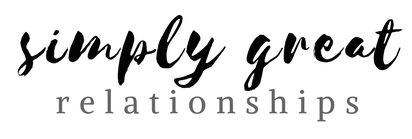Have you ever wondered about emotional affairs?
We’ve worked with many couples who have gone through the experience of a partner having an emotional affair. Let us tell you - an emotional affair is just as damaging (if not more) than a physical affair. The dishonesty and turning towards someone new instead of your relationship partner creates a significant breach of trust and requires a lot of repair work to move forward.
There are a few key components of emotional affairs:
1 | They’re secretive.
The communication between the individual and their affair partner is kept hidden from their relationship partner. Texts or emails may be deleted or there may be a second phone or email account. The individual may no longer allow their partner to access their cell phone or become defensive when they try. Often, the rationale for hiding this communication is that their relationship partner would “get angry” or “read too much into it” and they want to avoid the unnecessary conflict. Much of the time, the individual does not believe this communication constitutes “an affair.”
2 | They involve a LOT of communication.
Texts, emails, and phone calls start early in the morning and go on until late in the evening. It can seem that every free moment is consumed by interacting with the affair partner. The sheer volume of communication is a red flag that this relationship is more than just a friendship and is serving emotional (or physical) needs. Additionally, this level of communication takes away time and energy from the individual investing in their primary relationship.
3 | There is intense emotional closeness and vulnerability.
This is the most powerful component of an emotional affair. Due to the frequency and intensity of communication between the individual and their affair partner, a great deal of emotional intimacy is built quickly. Since this relationship exists only in fantasy - no bills, no chores, no managing a household together, no kids, limited time together, few opportunities for conflict or needing to compromise - it creates the opportunity for a ton of deposits in the emotional bank account and very few withdrawals. This dynamic creates intense emotional closeness that is reinforced each time there’s another interaction that feels good - and, unfortunately, when there’s an interaction with their relationship partner that doesn’t feel good.
In this week’s episode, we’re going into more depth on emotional affairs. We’re defining them, discussing the context in which they can occur, and giving you strategies for repairing and moving forward should you be experiencing this in your relationship.
Disclaimer:
Silveron Productions LLC and Nassau Wellness Marriage and Family Therapy PLLC do not hold itself out to be your psychologist, psychiatrist, psychotherapist, or social worker. Our content is provided for informational and educational purposes only and is not to be perceived or relied upon as medical or mental health advice, diagnosis or treatment. Do not use our content in lieu of professional advice given by qualified medical and mental health care professionals and do not disregard professional medical or mental health care advice or delay seeking professional advice because of information you have received from us. Always seek the advice of your physician or other qualified mental health provider with any questions you may have regarding a medical condition or mental disorder. If you think you may have a medical or mental health emergency, call your professional caregiver or 911 immediately. We do not recommend or endorse any specific tests, physicians, psychologists, psychiatrists, psychotherapists, social workers, products, procedures, opinions, or other information that may be mentioned in our content. By viewing our content, you acknowledge and agree that the following warnings and disclaimers apply to all of our content and agree to indemnify and hold Nassau Wellness and all content participants for any and all losses, injuries, and damages resulting from any and all claims that may arise from your use or misuse of the content.
By viewing our content, you further acknowledge that you are doing so voluntarily and at your own risk, and that you are solely and personally responsible for your choices, actions, and results, now and in the future. You accept full responsibility for the consequences of your use or non-use of any information provided in our content. Nassau Wellness is not liable for any advice or information provided in our content, all of which is provided on an “as-is” basis. No warranties, either express or implied, are made regarding the information we provide, and Nassau Wellness makes no representations about the accuracy or the suitability of our content. Opinions and other statements expressed by third-parties are theirs alone.


